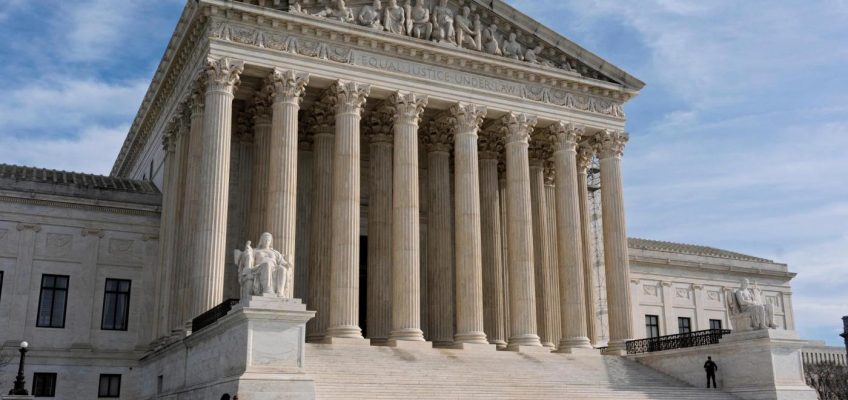Saturday’s Game 1 will mark a rare first for Mike Conley in his 18-year NBA career.
It’s the first time he’ll meet up with LeBron James in a playoff series. It’s remarkable that two players so accustomed to the postseason have never met on such a stage, but Conley has spent his entire career in the Western Conference, and James spent the first two-thirds of his in the East.
But Conley has long admired one of the two greatest players in the game’s history from afar. What has stuck out most to Conley is James’ “Command of the game.”
“He’s thinking two or three layers deep in a game. … Most people might not even realize what he’s thinking or seeing or doing, and I’ll sit there and be like, ‘I saw exactly what he saw, and he was able to pull that off,’ ” Conley said. “It may just be a pass to the opposite corner, but the things that had to happen to get to that point, he was meticulous and put guys in the right position to do that.
“His mind and his IQ are just otherworldly, and that’s the most impressive thing. That’s the real reason why — other than his athletic ability — he’s able to be so effective and still not miss a beat at Age 40.”
And his cohort, Luka Doncic, is the exact same way. James and Doncic are two of the game’s most cerebral players, a massive advantage for the Lakers heading into a best-of-seven series played under bright lights and palpable pressure.
It’s why national analyst Zach Lowe said on his podcast this week that while Minnesota may have the best roster of the two teams, he trusts the Lakers more.
“I know the Lakers are not going to go haywire because of who’s on their team,” Lowe said on The Zach Lowe Show. “And the haywire factor is why, if you’re going to pick the Lakers, that’s why.”
Minnesota is bigger, faster, stronger and, frankly, more talented than many of the teams it runs up against. But decision-making is often the team’s Kryptonite. While he’s not the sole culprit, Anthony Edwards is certainly a big piece of that equation.
The Wolves are pleased with the progress Edwards has made. The 23-year-old has seen just about every coverage a team can throw at him by now, and generally has a good feel for what he’s supposed to do in each situation.
The Lakers may play drop coverage in pick-and-roll when Jaxson Hayes is in the game, with the center dipping back toward the paint. Hayes may also jump up and “blitz” as Edwards comes off the screen, effectively forcing a brief double team. When Hayes isn’t in and the Lakers are center-less, they’re more likely to switch on screens and sag heavily into the gaps to clog all driving lanes.
The constant toggling of defensive looks creates a mental aptitude test for the Wolves’ star guard. The series figures to present a thorough exam that Minnesota is more confident than ever Edwards can ace.
“His recognition of what’s going on has gotten better and better. His ability and timing of making the right play and the right read has gotten better and better. His frustrations about how teams guard him, I think he now embraces it,” Wolves coach Chris Finch said. “The maturity all around, it’s gotten better.”
Finch said that is “one of the most impactful steps” Edwards has taken this season. The guard is recognizing problems and finding solutions more frequently.
“It used to take him a while,” Finch said. “Now I see him directing his teammates where he wants them in certain situations, which is really good, because now he’s thinking a pass or two ahead.”
But the challenge ahead of Edwards in this series is robust. The Lakers are long. They have a number of switchable defenders. Not only do they have a number of high-level thinkers on the court, but first-year coach J.J. Redick has been one of the NBA’s best game planners. Redick and James literally started a podcast last season titled “Mind the Game.”
Minnesota expects the Lakers to try forcing someone other than Edwards to beat them. That’s something the Wolves’ roster is capable of doing. A trust has been established this season that the guys around Edwards will deliver if they’re put in the proper positions. The guard is good with that.
“At this point in the season, it don’t matter who gets 20 points, 30 points. It don’t matter if I have five points. It don’t matter if Julius (Randle) has five points,” Edwards said. “Some nights it might be Naz (Reid) gets 30. This whole series Jaden (McDaniels) might average 25. It doesn’t matter who gets all the buckets and shots.”
Edwards got a significant taste of postseason success a year ago, when Minnesota reached the Western Conference Finals. But his scintillating run short-circuited in that final series, which the Wolves lost in five games to Dallas. Edwards said this week he was physically out of that series.
The hunger to reach, and exceed, those heights this spring was apparent this week. In the hours after Minnesota’s first-round opponent was determined, Edwards began texting and meeting up with his teammates as he dug into the matchup.
Nickeil Alexander-Walker described Edwards as “intense, motivated, determined.” That drive needs a proper direction, and everything the guard says suggests he’ll follow the plan.
“They may throw something different at us, but if not, we’re used to their coverages. … Just being willing to get off the ball to my teammates, and that goes back to me texting and talking to my teammates,” Edwards said. “I told (Conley), ‘You’ve gotta be willing to shoot five straight catch-and-shoot 3s. Don’t turn nothing down.’ Donte (DiVincenzo), Nickeil, Naz, Jaden, they’ve gotta be willing to shoot those shots and not turn anything down. And I’ve gotta be willing to make those passes every time to open the defense up for me to get downhill.”
It all sounds great. Planning to execute is Step 1. Carrying it out on a nationally televised stage against two high-profile players when most onlookers are expecting, and even hoping, for you to score 40 points on 25 to 30 shots is quite another.
“I think the Lakers would be absolutely stoked if Ant approached this series like, ‘I’m winning this by myself. This is my moment,’ ” Lowe surmised.
The temptation to deviate will exist. Can Edwards fight it in his pursuit of the ultimate prize? In his fifth playoff appearance, can he become the guy everyone trusts to make the right play in the big moment?
“It’s going to be a big series for Ant. He’s got to be able to grow up right in front of us and be able to handle what he’s about to experience,” Conley said. “It’s going to be a lot of trying to get the ball out of his hands. They’re going to try to be smarter than us, they’re going to try to outwit us in a lot of different areas. He’s got to be patient, he’s got to be able to be thinking ahead of the game.
“LeBron does it all the time. Ant, you’ve got to start looking at the second and third layer of things. Doing it for your teammates, doing it for yourself, make the game easier for yourself. There’s no time better than right now. It’s necessary for us to win, honestly. If we’re going to have a chance to win that series, he’s got to be that guy. And I think he can be and will be for us.”
Frederick: To beat the Lakers, Minnesota must conquer its Boogeyman
Timberwolves beat Utah, lock up playoff matchup with Lakers
Anthony Edwards has technical foul rescinded, will play Sunday
Running through the Timberwolves’ potential first-round playoff options
Rudy Gobert ties career high with 35 as Minnesota dismantles Brooklyn




